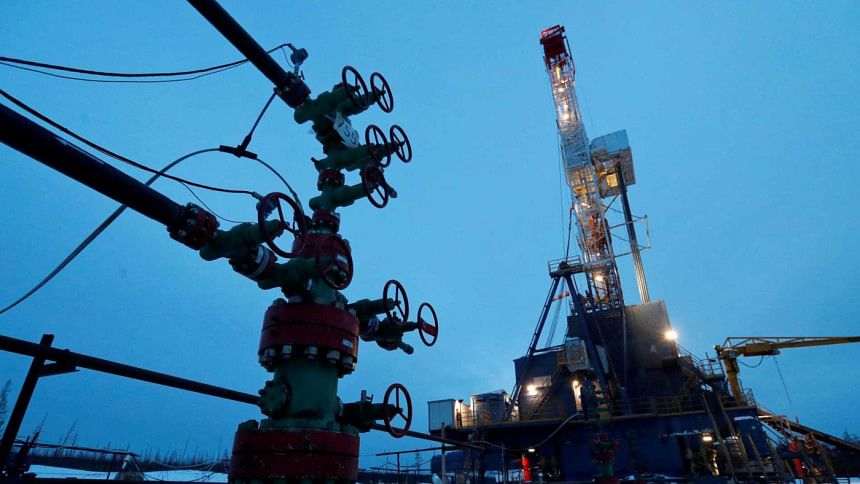Ukraine war and the reliance on Russian energy

The Russian invasion of Ukraine and the subsequent sanctions against Russia have already created a global energy insecurity. Russia is the largest natural gas exporter in the world, the second highest crude oil and condensates exporter after Saudi Arabia, and the third largest coal exporter behind Indonesia and Australia. Russian exports account for about 45 percent of the European Union's (EU) gas imports and 40 percent of its entire gas consumption. Germany, Turkey, Italy, Belarus, and France receive most of this natural gas. China and Japan are also among the top 10 destinations, together accounting for approximately 10 percent of Russia's natural gas exports. Countries in Asia—China, Japan, South Korea, and Taiwan—and the Oceanic region receive most of Russia's coal exports. This dependence on Russian fossil fuels has somewhat deterred the onslaught of sanctions against them—and the consequences don't end there.
This disruption to oil and gas supply from a major exporter closely mirrors the events of the Yom Kippur War. In 1973, the Organization of the Petroleum Exporting Countries' (OPEC) oil embargo on the US compelled them to build over a hundred nuclear reactors to ensure energy security. However, that trend died down in the mid-80s after the Three Mile Island and Chernobyl accidents. Before the Fukushima accident in 2011, 13 percent of global electricity was generated from nuclear energy. Before the Russia-Ukraine war, the share of nuclear power was 10 percent.
One may think that a focus on nuclear reactors would alleviate some of the energy needs once again. But it's not that simple. Russia has the largest uranium enrichment capacity in the world and provides about 35 percent of the global requirement. Reactors in many countries run on Russian-supplied nuclear fuel, including several in the US and Europe.
Despite the US decision to stop importing Russia's fossil fuels, a full ban on uranium import is yet to be seen. The good news is that there would be no immediate impact if Russia's uranium export is cut off, as the reactors currently in operation in the US can run for 18-24 months without being refuelled. And it is prodding other European countries like Poland, Czech Republic, and the UK to accelerate their nuclear power deployment plans. In Asia, both Japan and South Korea are reversing their positions on nuclear expansion, and China has announced plans to build 150 reactors. The global dependency on Russia's oil, coal, and gas has shown how vulnerable the global energy infrastructure is. The combination of the growing demand for reliable carbon-free energy, a need for decreased dependence on Russia's fossil fuels, and the need for energy security is enhancing the appeal of nuclear power in an unexpected way. Furthermore, large uranium reserves in Russia and Kazakhstan should also serve as motivation to explore new innovative fuel cycles, and the return of previously explored alternatives like the thorium fuel cycle (much abundant than the traditional uranium fuel), which was popular in the 70s. Nuclear energy already received a boost out of the COP26 climate conference in Scotland last year, as countries grappled with how to meet their carbon emission goals.
Currently, Russia is the world's primary nuclear power exporter. However, they may lose their existing (Turkey, Bangladesh, Belarus, India, Iran, China, and Egypt) and future clients of the Water-Water Energetic Reactor (VVER)—similar to the Western Pressurised Water Reactor (PWR) design—due to financial sanctions, supply chain disruption, and a lack of technical support from the West. This void needs to be filled up, and it is a chance for North American and EU nuclear reactor manufacturers to pounce upon. If Russia's long-term state sponsorship of nuclear power gets hampered, and if the West does not come forward to fill in this for the developing countries, China will inevitably take the opportunity to increase its influence. This does not bode well for the existing liberal world order.
The US is working on developing the next generation of advanced small modular/micro reactors with enhanced safety features. These reactors will require uranium fuel with higher enrichment which, at present, can only be produced in Russia. This dependence on Russian resources and technology has reduced Washington's leverage against The Kremlin. If the US wants to wean its nuclear industry, and that of its allies, off of Russia's nuclear cooperation, it will have to reconsider its nuclear energy policy. In response to Russia's invasion of Ukraine, civil nuclear expansion will be a worthy step for all.
Ever since Klaus Fuchs, a German nuclear spy, gave the USSR the secrets of the Manhattan Project, nuclear warfare has been at the forefront of the conflict between the first world liberal society and the former communist bloc. During the Cold War, the two sides developed their nuclear reactor technology independently. This led to some unique Russian designs that strayed far from the contemporary Western designs. Added to that is the ticking clock of global warming. So time has come to rethink every country's nuclear energy policy for energy security as well as for tackling climate change.
Dr Md Shafiqul Islam is a researcher and writer, and a professor at the Department of Nuclear Engineering in Dhaka University.

 For all latest news, follow The Daily Star's Google News channel.
For all latest news, follow The Daily Star's Google News channel. 



Comments